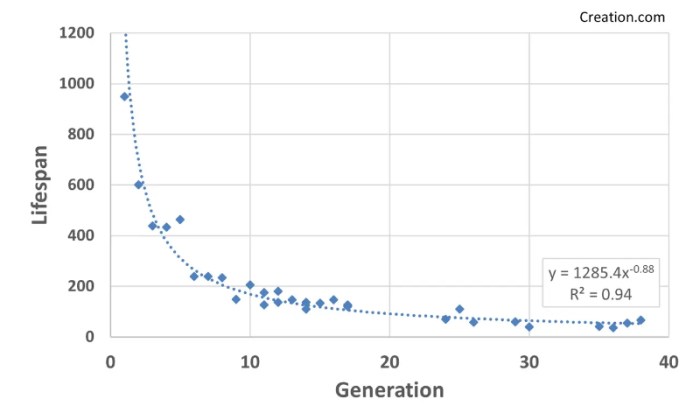Why did God shorten the lifespan? This question has intrigued and perplexed theologians, philosophers, and scientists for centuries. From biblical accounts to scientific discoveries, various perspectives have emerged to explain the complex interplay between divine intervention, human sin, and the natural processes that shape our mortality.
This exploration delves into the theological concepts of divine retribution and the consequences of sin, examining how these beliefs have influenced perceptions of shortened lifespans. It also investigates the scientific understanding of aging and the role of genetics, environmental factors, and lifestyle choices in determining human longevity.
Divine Intervention

Divine intervention is the belief that God actively interacts with the world and can alter the course of events. In the context of human lifespans, divine intervention suggests that God has the power to shorten or extend the length of a person’s life.
Religious texts provide numerous examples of divine intervention in human lifespans. In the Bible, for instance, God is said to have shortened the lifespans of the patriarchs after the Flood as a punishment for their sins (Genesis 6:3). Conversely, God is also depicted as extending the lifespans of individuals as a reward for their faithfulness (Exodus 23:26).
The reasons why God might choose to intervene and alter human lifespans are varied. In some cases, divine intervention may be a response to human sin or disobedience (see below). In other cases, it may be part of a larger divine plan or purpose (see Purpose and Destiny).
Consequences of Sin
Theological perspectives often view human sinfulness as a contributing factor to shortened lifespans. The concept of original sin, which holds that all humans are born with a sinful nature inherited from Adam and Eve, is believed to have a negative impact on human health and longevity.
Sin is seen as a violation of God’s laws and can lead to both physical and spiritual consequences. Physical consequences may include illness, disease, and premature death. Spiritual consequences may include alienation from God and an inability to experience the fullness of life.
Punishment for Disobedience
In some religious traditions, God is seen as a sovereign ruler who may shorten lifespans as a form of punishment for disobedience. This idea is reflected in biblical passages such as Exodus 20:12, which states that honoring parents leads to “long life in the land.”
Conversely, disobedience and rebellion may result in premature death.
The ethical implications of using shortened lifespans as a form of divine retribution are complex. Some argue that it is just for God to punish those who violate his laws. Others contend that it is cruel and unjust to impose such a severe punishment for human failings.
Natural Causes and Aging, Why did god shorten the lifespan
In addition to theological perspectives, scientific and biological factors also contribute to aging and the shortening of lifespans. These factors include genetics, environmental influences, and lifestyle choices.
Genetics play a significant role in determining an individual’s lifespan. Some genes are associated with longevity, while others are linked to an increased risk of age-related diseases. Environmental factors, such as exposure to toxins and pollutants, can also have a negative impact on health and longevity.
Questions Often Asked: Why Did God Shorten The Lifespan
Is God responsible for shortening lifespans?
Theological perspectives vary, with some suggesting divine intervention while others emphasize the consequences of human sin or the natural processes of aging.
How does sin contribute to shortened lifespans?
Theological perspectives often view sin as a catalyst for physical and spiritual consequences, including reduced lifespans, due to its disruptive effects on the human body and soul.
Can shortened lifespans be a form of divine punishment?
Some religious texts present instances where individuals face consequences for their actions, including shortened lifespans, as a form of divine retribution.
How does science explain the shortening of lifespans?
Scientific understanding attributes aging and the shortening of lifespans to biological factors such as genetics, environmental influences, and lifestyle choices.
What is the role of purpose and destiny in determining lifespans?
Some theological perspectives propose that God may predetermine lifespans based on individuals’ roles in the divine plan, suggesting that shortened lifespans may serve a specific purpose or destiny.


